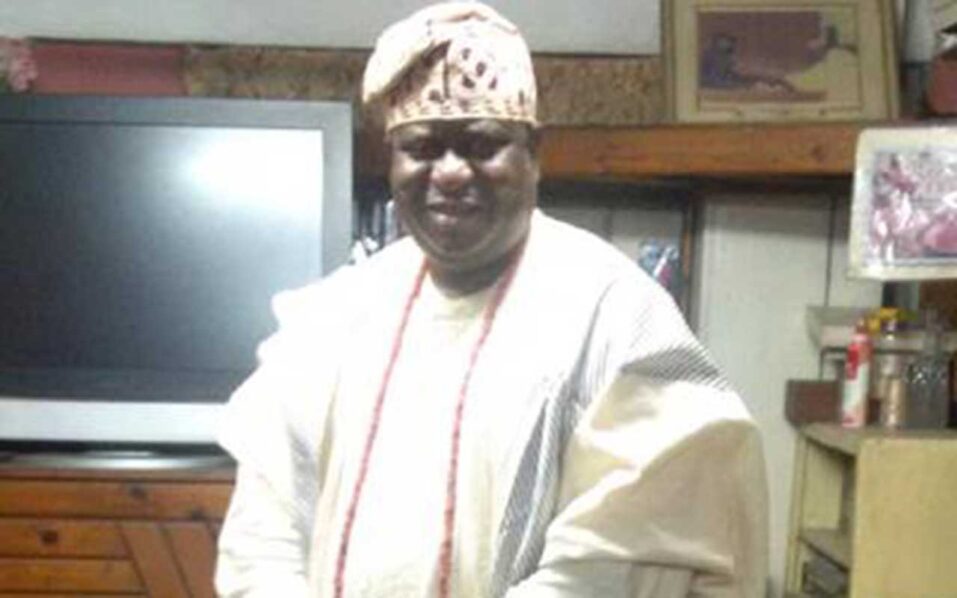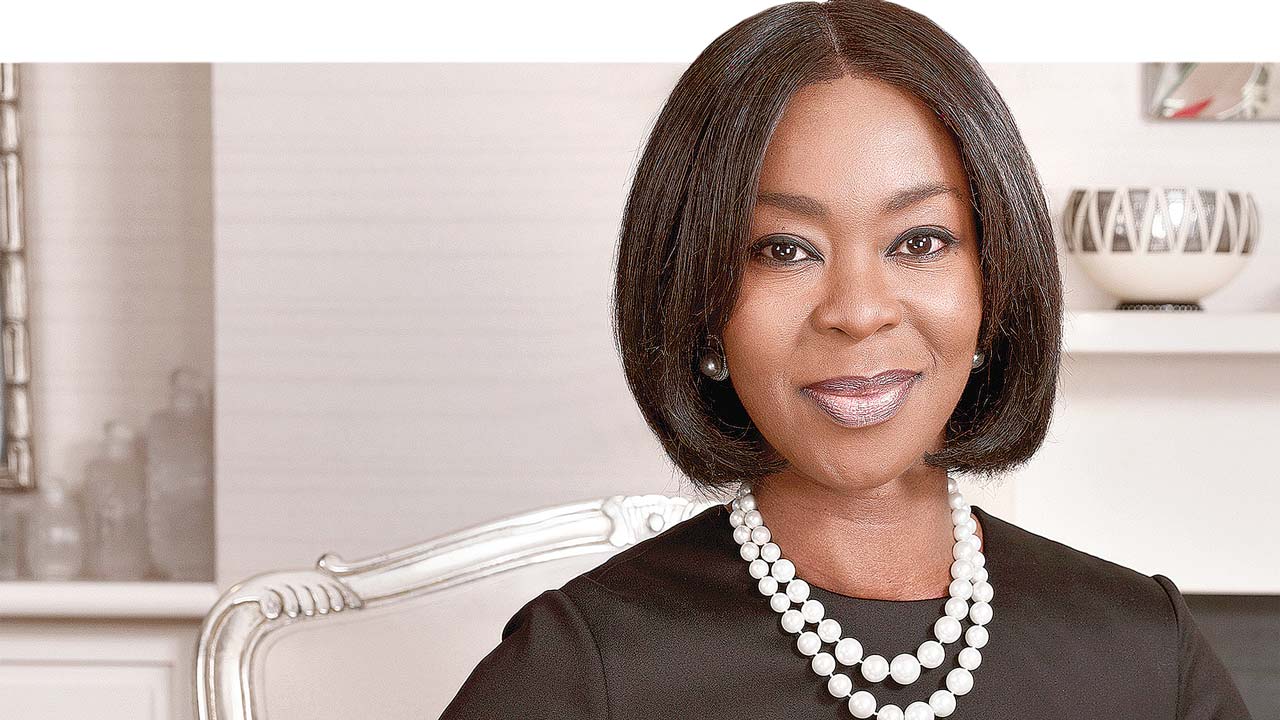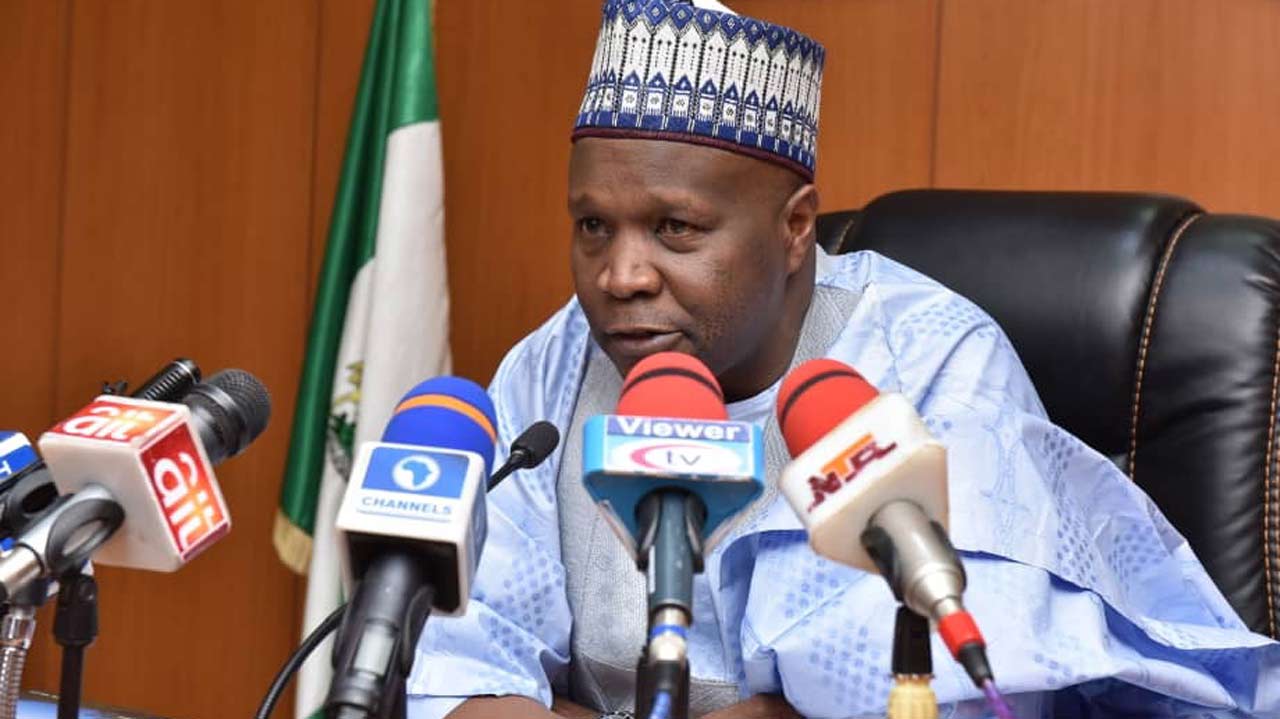
Professor Fassy Yusuf is a man of many parts, who has traversed different fields of endeavour and is now in the pinnacle of the academic profession. He has had a hand in Policing, Marketing, Public Relations, Management, Culture Promotion and Law. He clocked 70 during the week and had a chat with GBENGA SALAU. Excerpts:
Can you give an insight into your life journey as you mark 70?
My mother, who is still alive, is from Itsekiri, Deghele Island in the Benin River, about 50 nautical miles from Warri in Delta State. My father was a jeweler and businessman in Warri, where he spent over 55 years. He married my mother when she was about 15 years old.
In those days, I used to tease him by saying, ‘Daddy, if it were now, you would be charged with child abuse.’ My mother had me when she was 16 and half years old, and my younger brother followed soon after. I was born on January 3, 1955, and my younger brother was born in 1956. My mother is the only child of her father, and she was highly pampered in her home. Her father was the head of Deghele Island, which I mentioned earlier.
When my younger brother became sick, my mother decided to give him Itsekiri tribal marks, perhaps hoping it would cure his illness. But when she brought him to Warri and my father saw him with the marks, he asked, ‘Are you sure this is my son?’ He threatened to chop off my mother’s head if she didn’t take him back to where she got him from. That was the end of their marriage. My mother returned to her father and being his only child, she was deeply favoured.
My grandmother, realising the situation, came to pick me up before my mother could return to her village. In retrospect, I consider that a wise decision. If I had stayed with my mother, I might have ended up being involved in bunkering, fishing or something else in the village, which is far from Warri. To this day, Deghele Island is only accessible by sea or air.
Where did you start schooling?
I was taken to Ijebu Ode, where my grandmother, a businesswoman and a princess, lived. Her husband had a settlement in Agosasa near Idiroko, and from there, we moved to Ilaro, and then to Mamu, where my grandmother’s husband owned a cocoa farm. Mamu is a border town between Ogun and Oyo states. This was where I started primary school. However, my aunt, a businesswoman in Mamu, fell ill, and we had to leave in search of treatment, causing me to miss a year in school. When I eventually wanted to restart, we were told it was already late for admission that year; so, I missed another year. So, I lost two years in total.
Despite these setbacks, I was fortunate to start primary school at just four or five years old, at Ansarudeen Primary School, and continued from Primary Two. I left primary school in 1967 at age 12 and went on to Muslim College, leaving in 1972 at age 17. This is despite losing two years of schooling. This journey of moving from one place to another, with neither of my parents around, didn’t hold me back in my education. I caught up quickly.
In 1972, the military government decided to nationalise all secondary schools in the Western states. At that time, the Higher School Certificate (HSC) we were studying for became almost automatic for us. We would transition straight from secondary school into the HSC class.
You were once in the Police Force; how did you join and what made you leave early?
At one point, I don’t know what came over my father; perhaps he was disillusioned. But he told me to go to Lagos to meet my elder brothers. I had three brothers there, and the eldest was a chartered accountant who was like a mentor to us. However, I didn’t like Lagos at that time. Number one; that was the period Gowon said we had so much money as a country that we didn’t know how to spend it. Secondly, the country had just come out of the civil war and the economy was booming, with efforts at rehabilitation, reconstruction, and reconciliation. Things were moving fast, and Lagos was chaotic.
Also, the only available room in Lagos was at my brother’s house, where eight people shared a single room. I had grown up in a room and parlour setting as a secondary school student and couldn’t imagine fitting into that crowded environment. So, I decided to go back to Warri but my father didn’t approve. He thought my mother had influenced me to pursue her own agenda. Despite my appeals, nothing changed and I became frustrated and despondent.
So, the admission I got, I lost. And at that time, there was no centralised admission system. I had three different offers, including for colleges of education. Despite my frustration, I still believed in pursuing further education. I even sat for the entrance exam into the Defence Academy. When the results didn’t come quickly, I reached out to my father’s friends – one, the acting Commissioner of Police in Benin, Mr. Oshodi, and another, Mr. Fajano, the OC Mopol. They helped me apply to join the Police Force, believing my father had sent me. I had the necessary qualifications and was ready to join as a constable, though it was far below my academic level. Eventually, the day they came to pick me up for the Police College in Ikeja, Lagos, my father, thinking it was just a regular visit, was shocked when he learned I had joined the police. They had already signed the paperwork, and there was nothing he could do but pray for me.
My training at the Police Training College in Ikeja wasn’t academically challenging, but the physical demands, like the parade and shooting range, were tough. At times I feigned to be sick.
I was a member of the press club when I was in secondary school. So, I discovered that there was an opportunity in the Public Relations Department of the Police because the department was newly created.
The first person to head that department was a journalist. They had a magazine and they encouraged those of us – the new recruit who could write – to contribute. I was writing and they were being published.
Thereafter, I saw an advert in Daily Times newspaper about the Public Relations Institute in London and registered as a student. I took tutorial courses and sat for the examination.
By this time, I had completed my training. Then the police were fantastic. After my training, I was posted to Calabar, where I was given the position of station writer at the Divisional Police Headquarters. Later, I was posted to the Nigerian Ports Authority in Calabar, where I was on permanent night duty. During this time, I earned a certificate in Public Relations and a Diploma in Journalism by 1975.
However, my time in the Police Force wasn’t long. As I neared my promotion to ASP, I decided to leave. Later, I was posted to the Public Relations Department and I discovered that my boss did not like me simply because of my qualifications and youthfulness. They defaulted me once. And in those days, if you were defaulted twice or thrice, you were on your way out.
So, I didn’t want that. And it was nearing my third year; I was waiting for my promotion as ASP. I said I didn’t want to wait for that. They said, please wait. I said, no. Those days, you will sign. So, I left.
The moment I left, I joined Rock Publicity. And this was when I truly felt the reward of my education. My first salary at Rock Publicity was a significant increase – N250 – from the N50 I was earning in the Police. This was life-changing. At Rock Publicity, I worked with the legendary Sunny Okosun and promoted “Papa’s Land” around the country.
Later, I joined King and George Nigeria Limited. I was appointed the editor of Sporting World and I was also the publication manager of the company. The company was into pool betting and publication of sports newspapers. It was also into shipping, haulage and the rest. They later established a printing press.
Then I got my qualifications in Advertising and Marketing. There was a time I went to the UK in 1981 to receive an award as the best student. During the awards ceremony, some universities came to exhibit and admit students. Some of the universities had admission opportunities for M.Sc in Marketing, Advertising and all the rest. And then I saw one course, Masters in Business Administration (MBA). That was the time MBA was just coming on board. So, I just decided, out of fancy, to enroll for an MBA.
But then I was working with Adebowale Group of Companies. It was then one of the biggest indigenous companies distributing a number of household items – fridges, freezers, television sets, radio, and so many other things. However, when I came back, I told my chairman about the MBA admission. I was able to convince the chairman to allow me return to the UK for the MBA programme though he said it would be tabled before the board.
Somehow, when I was given the letter, what I saw was that the company has reviewed the situation and has not seen a reason for me to embark on an MBA programme. And that what the company could do was to expose me to their partners abroad in the process of which I could attain any position. Initially, I was devastated but I said no; as there’s nothing stopping a willing mind.
So, when I said I was going to go, I was told to resign as well as vacate the company apartments. I was also told to surrender the official car. Then my personal car, I should offset the loan or return the vehicle. I just decided to return the vehicle. They said, oh, why? I said nobody was willing to buy a second hand car. When they saw that I was serious, the chairman called me privately. He gave me a cheque for 2,000 pounds. Then my late friend, Chief Gani Fawehinmi, gave me 1000 pounds. I also sold some of the things I had then and I journeyed out. After completing my MBA, I returned to Adebowale Group, but things had changed.
In 1985, I ventured into private business, establishing a marketing communication firm and importing electronic products. When the business struggled, I dusted off my certificates and applied for a managing director position at one of the Ibru subsidiaries. My MBA gave me the edge, and I was hired.
In 1988, I became the Secretary-General of NIPR. Later, I served as a director at TBS for nine years. I was removed after I campaigned for the release of General Diya, and I became the target of an assassination attempt.
What would you have done differently looking back?
Looking back, I believe that God’s guidance has been pivotal. I don’t know what I would have done differently, because I trust that everything happened for a reason. Even though I may not have reached the wealth of figures like Dangote, Otedola or Adenuga, I am content with what I have achieved.
Can you speak more to the assassination attempt on you?
It was Diya that appointed me commissioner against my wish and desire. I was doing my job and was happy working for him. When he asked that I work for him, I told him that if he wanted me to work for him, I didn’t mind being his Chief Press Secretary. He said with your size, you want to work for me and you will be towering above me and people will be asking who the boss is among us. He then asked that I should get someone to work as Chief Press Secretary for him. I contacted some people who did a Masters of Science (M.Sc) degree with me at the University of Lagos.
After the CPS was appointed, Diya kept asking what I wanted and I said I just wanted to be around him since he rejected me being his CPS. Later, I told Diya that I wanted to be chairman of a local council and he felt I was stupid as he felt I was more than that. He then reported to the Awujale that many were lobbying to be commissioners but I do not aim to become one. Eventually, I was appointed commissioner and I was naturally given the portfolio of Commissioner for Information, Youth, Culture, Community Development and Social Welfare. Not long after, I was appointed chairman of Sketch Press, Ibadan.
But when I saw the intrigues in the Presidential Villa, I tried to warn Diya that there were signs. I also told him that I would be leaving the government. He then told me that if I leave, I would be branded NADECO and that I would die. I was working with Col. Akintande then and later Ewag, a Wing Commander. And many of my friends were Generals because of being a director at TBS.
So, my boss, Ewag, was not comfortable seeing me with the Generals. He went to the Chief of Staff and said that he wanted to dissolve his cabinet and he was told that before he came, Fassy had already come to say he wanted to leave his cabinet. The cabinet was dissolved and I left but they started staging press war against me.
Even after the cabinet was dissolved, I was still going to see Diya in his house and the movement around Diya, especially by Bamaiyi and co, made me uncomfortable. I tried to warn Diya but he rebuffed me.
But one Saturday, we just heard that there was a coup attempt and that they were looking for Diya and he had run to one of his guest houses. But he never knew that they had mounted spies around him. So, they brought him. Unknown to him, when they were having a meeting with him, the discussions were being recorded. And the plan was for Diya to lead the coup, assassinate Abacha and for Bamaiyi to assassinate Diya.
Diya thought that Bamaiyi and co loved him because they were telling him he was the best thing that ever happened to the military. That was how they arrested Diya. When the military tried him, it was Victor M that sentenced him to death. They were transferring him from one place to another and eventually he was kept in Jos prison.
So, when they passed the judgment, it was me, Diya’s children and siblings that mounted the press campaign for his release or commitment to jail term. One of the journalists that covered a briefing at the Shomolu NUJ Press Centre mistook me as the first son and it was published as a front page. That was the beginning of my ordeal and they started running after me and I had to go underground. The first thing they did was to remove me from the TBS board as director. But thank God that they did not succeed.
You have crisscrossed different sectors; what were the propelling factors?
The fear of failure, as I do not want to be a failure. It is why I continue to strive and struggle. One thing in life is that if you do not pursue further goals, you become rustic and complacent, which kills initiative.
Before I left as a commissioner, I had registered to read Law and people were making mockery of me, wondering how a commissioner would be going to the classroom to read but I knew what I wanted. This is because I was looking at after leaving as a commissioner would I go back to be a journalist or practice PR? And this is because we live in a society that is paradoxical; if you steal, you are in trouble; if you do not steal, you are in trouble. If you did not steal, they will say, ‘look at him, former commissioner commuting in public transport’; and if you steal, they will claim his grandparents were armed robbers too.
So, I registered for Law as a pathway to a better life after being commissioner. After the Law programme, I went to Law School and I have been practising. Also, I was an adjunct lecturer and when the NUC said anyone that must lecture must have a PhD, I put in for my PhD programme, which I completed within four years. I used the PhD to mark my 60th birthday and as God will do it, Hallmark appointed me professor recently, which I am using to mark my 70th birthday.






